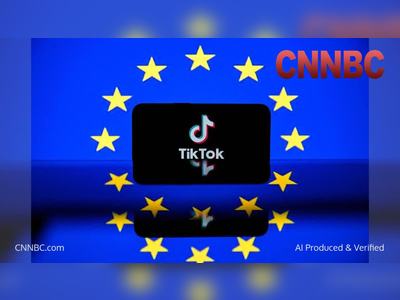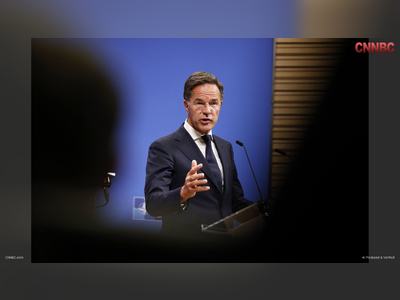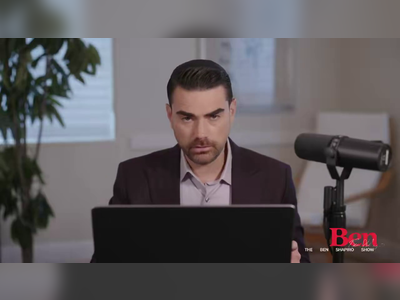The German Owner of Politico Mathias Döpfner Eyes Further U.S. Media Expansion After Axel Springer Restructuring
After taking full control of publisher Axel Springer, Mathias Döpfner has a pile of cash and the desire to grow. With sweeping corporate reorganisation nearly complete, Axel Springer’s chief is reportedly preparing to deploy capital in new American media acquisitions
Mathias Döpfner, chief executive of Axel Springer, is making clear his ambition for fresh expansion in the U.S. media market after finalising major changes in his company’s structure.
With control over the group’s media assets secured and the classified-ad business to be spun off under separate ownership, Döpfner appears poised to hunt for another prominent U.S. outlet.
In late 2024, Axel Springer struck a €13.5 billion deal with private equity firm KKR to separate its classifieds operations — including jobs and property platforms — from its core media publications.
Under the deal, Döpfner and the Springer family will hold nearly all equity and control over the media division, which comprises brands such as Politico, Business Insider, Bild and Die Welt, while KKR takes majority control of the classified-advertising businesses.
The transaction is expected to close in the second quarter of 2025, pending regulatory approval.
This restructuring has given Döpfner what some describe as a “war chest” of financial flexibility.
Reporting suggests he is now assessing potential purchases among English-language legacy media outlets.
Possible targets include high-profile names such as the Financial Times or Wall Street Journal, although sources caution that acquisition costs and ownership resistance make such deals especially challenging.
Döpfner himself has signalled scepticism about buying certain titles; in past interviews he has stated there is “zero” chance of acquiring the Wall Street Journal, for example, while expressing no absolute limits for other media properties.
The strategy reflects Döpfner’s long-standing goal to grow Axel Springer’s influence in the United States, especially in digital journalism and high-engagement political news.
Under his leadership, Politico has become a central foothold.
He has also emphasised the importance of speed, technology — particularly artificial intelligence — revenue diversification, and international expansion.
While no acquisition has been announced, the conditions are shifting: owning strong digital brands, streamlined operations, and greater autonomy for the media division could allow Döpfner to move more aggressively.
Some analysts believe that whether he succeeds in securing an additional U.S. media outlet will depend on identifying an acquisition target whose editorial position, brand prestige, and digital strength align with Axel Springer’s evolving vision, and whose ownership is willing to sell.
Meanwhile, internal strategy shifts at Axel Springer underscore a broader industry trend: media groups consolidating, carving off non-core businesses, and reorienting toward digital-first, subscription-supported journalism.
It remains to be seen how competition from established media brands or regulatory scrutiny will affect Döpfner’s next moves.
With control over the group’s media assets secured and the classified-ad business to be spun off under separate ownership, Döpfner appears poised to hunt for another prominent U.S. outlet.
In late 2024, Axel Springer struck a €13.5 billion deal with private equity firm KKR to separate its classifieds operations — including jobs and property platforms — from its core media publications.
Under the deal, Döpfner and the Springer family will hold nearly all equity and control over the media division, which comprises brands such as Politico, Business Insider, Bild and Die Welt, while KKR takes majority control of the classified-advertising businesses.
The transaction is expected to close in the second quarter of 2025, pending regulatory approval.
This restructuring has given Döpfner what some describe as a “war chest” of financial flexibility.
Reporting suggests he is now assessing potential purchases among English-language legacy media outlets.
Possible targets include high-profile names such as the Financial Times or Wall Street Journal, although sources caution that acquisition costs and ownership resistance make such deals especially challenging.
Döpfner himself has signalled scepticism about buying certain titles; in past interviews he has stated there is “zero” chance of acquiring the Wall Street Journal, for example, while expressing no absolute limits for other media properties.
The strategy reflects Döpfner’s long-standing goal to grow Axel Springer’s influence in the United States, especially in digital journalism and high-engagement political news.
Under his leadership, Politico has become a central foothold.
He has also emphasised the importance of speed, technology — particularly artificial intelligence — revenue diversification, and international expansion.
While no acquisition has been announced, the conditions are shifting: owning strong digital brands, streamlined operations, and greater autonomy for the media division could allow Döpfner to move more aggressively.
Some analysts believe that whether he succeeds in securing an additional U.S. media outlet will depend on identifying an acquisition target whose editorial position, brand prestige, and digital strength align with Axel Springer’s evolving vision, and whose ownership is willing to sell.
Meanwhile, internal strategy shifts at Axel Springer underscore a broader industry trend: media groups consolidating, carving off non-core businesses, and reorienting toward digital-first, subscription-supported journalism.
It remains to be seen how competition from established media brands or regulatory scrutiny will affect Döpfner’s next moves.











